MAHMOUD M. AYOUB was born in South Lebanon. He received his education at the American University of Beirut (BA, Philosophy, 1964), the University of Pennsylvania (M.A., Religious Thought, 1966), and Harvard University (Ph.D., History of Religion, 1975). From 1988 to 2008, he was a Professor and director of Islamic Studies in the Department of Religion, Temple University, Philadelphia, an Adjunct Professor at the Duncan Black Macdonald Center, Hartford Seminary, Connecticut, a Research Fellow at the Middle East Center, University of Pennsylvania and the Tolson visiting professor at the Pacific School of Religion, Berkeley California. In 1998, Dr. Ayoub helped devise and launch a graduate M.A. level program in Muslim-Christian relations and comparative religion for the Centre for Christian-Muslim Studies, University of Balamand, Lebanon, and since the Spring of 1999, has been its visiting professor. Mahmoud Ayoub has also previously taught at San Diego State University, the University of Toronto, and McGill University.
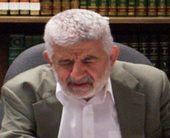
He was a recipient of the Kent Doctoral Fellowship and the Canada Council Fellowship. In 1994-5, he participated in the Fulbright Exchange of Scholars program for Malaysia. In the Spring-Summer of 2000, he undertook a research project on Christian-Muslim relations in Egypt and Lebanon, also on a Fulbright scholarship.
Mahmoud Ayoub is the author of a number of books including, Redemptive Suffering in Islam and The Qur’an and Its Interpreters (vol. 1 & 2),Dirasat fi al-‘Alaqat al-Masihiyyah al-Islamiyyah in Arabic (Studies in Christian-Muslim Relations) (2000), Islam: Faith and History (2004). In addition, his articles have appeared in The Muslim World, Journal of the American Oriental Society, Bulletin of the Institute of Middle Eastern Studies (Tokyo, Japan) and Islamochristiana (Rome, Italy). Dr. Ayoub is a member of IIIT Council of Scholars, a select group of distinguished scholars who advise IIIT on academic matters. He has been teaching Qur’an and Sunna during the IIIT Summer program for students since 2007. He has also been the Chair of IIIT Summer Institute for Scholars for the past three years.
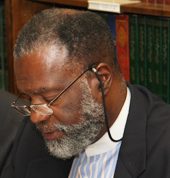
SHERMAN A . JACKSON is Professor of Islamic Studies Department of Near Eastern Studies at the University of Michigan. His areas of specialization are Islamic law and theology. He earned his B.A., M.A., and Ph.D. at the University of Pennsylvania between1982 and 1990. Professor Jackson has broad teaching experience at Wayne State University, Indiana University, University of Texas at Austin, American University in Cairo, Egypt, and Middlebury College. He has also received numerous fellowships and awards and has served as interim president of the Shari’ah Scholars Association of North America and as a member of the Board of Trustees for the North American Islamic Trust. Jackson is the author of Islamic Law and the State: The Constitutional Jurisprudence of Shihab al-Din al-Qarafi (E. J. Brill, 1996) and On the Boundaries of Theological Tolerance in Islam: Abu Hamid al-Ghazali’s Faysal al-Tafriqa (Oxford, 2002), as well as numerous articles on Islamic law, theology and, more recently Islam in America. He speaks classical Arabic, Egyptian Levantine, and Saudi Arabian dialects and has a reading knowledge of French, German, and Persian. Professor Jackson is a member of IIIT Council of Scholars, a group of distinguished scholars who advise IIIT on academic matters.
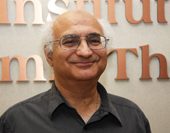
IMAD-AD-DEAN AHMAD is President and director of the Minaret of Freedom Institute, a Washington-based organization dedicated to research and education on Islam and Muslim world affairs. He is an internationally known interdisciplinary scientist and author of several books, including: Signs in the Heavens: A Muslim Astronomer’s Perspective on Religion and Science. He is co-editor of Islam and the West: A Dialog, and co-author of Islam and the Discovery of Freedom. Dr. Ahmad is a senior lecturer at the University of Maryland where he teaches courses on “Religion and Progress” and “Religion, Science and Freedom”. He is also an adjunct Professor at the John Hopkins University School for Advanced International Studies where he has taught a course on Islam and Development.
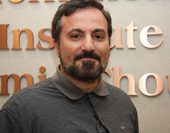
LOUAY M. SAFI is an associate faculty at the Indiana University-Purdue University, Indianapolis (IUPUI) and a fellow of the Institute of Social Policy and Understanding (ISPU). He is author of eleven books, including: The Qur’anic Narrative (Praeger 2008), Tensions and Transitions in the Muslim World, (University Press of America, 2003), Peace and the Limits of War (International Institute of Islamic Thought, 2001), The Challenge of Modernity (University Press of America, 1994), and Truth and Reform (The Open Press, 1998). Dr. Safi is a founding member and former board member of the Center for the Study of Islam and Democracy (CSID) (1999-2007). He served as communications and leadership development director (2009) and executive director of the Leadership Development Center (2004-08) of the Islamic Society of North America (ISNA). He also Served as the Executive Director (1995-97) and Director of Research (1999-2003) of the International Institute of Islamic Thought (IIIT), and as Editor of the Journal of Islamic Social Sciences (1999-2003), and President of the Association of Muslim Social Scientists (1999-2003). Dr. Safi participated in numerous national and international forums and conferences, and appeared on numerous radio and TV programs, including CNN, BBC, Monte Carlo, Fox News, PBS, Middle East TV (MBC), Al-Jazeera TV, Voice of America, Malaysian Television, Syrian TV, and others.
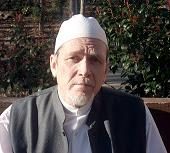
KENNETH LEE HONERKAMP is an associate professor in the Department of Religion at the University of Georgia at Athens. He has taught at UGA since 1999. He is a graduate of the Quarawiyyine University of Morocco (1981), The University of Georgia at Athens (1995), and the University of Aix-en-Provence, France where he earned his Ph.D. for his critical edition and analysis of Ibn ʿAbbād of Ronda (d. 792/1390) Rasāʾil al-kubra (2000). Prior to this he had spent ten years in Pakistan and Afghanistan studying Islamic Law in the various traditional institutions there. During this time he was exposed to the pedagogic methodologies and courses of study employed in the madrasa systems of Central Asia.
He spent twenty years in Morocco where he gained extensive knowledge of Moroccan Sufi orders and Sufi pedagogy as well as first hand-experience in the manuscript libraries of Rabat, Fes and Marrakesh. His research interests lie in the areas of teacher/disciple relationships, Islamic traditional education, Shariah and Sufism, the shrines of Sufi saints, and the study and translation of letters of spiritual guidance written by Sufi masters. He has published numerous articles on Sufism, and the lives and teaching methods of several well-known Moroccan Sufi masters such as Ibn ʿAbbād, Hassan al-Yousi, and Mulay Bu ʿAzza. He has published over ten previously unedited treatises by Abu Abd al-Rahman al-Sulami of Khurasan (d. 412/1021) in the Collected Works of Sulami project being published by the University of Tehran. In his second edition of Three Early Sufi Texts, published by Fons Vitae he has translated two of Sulami’s texts; Darajāt al-Ṣādiqīn and Kitāb bayān tadhallul al-fuqarāʾ. His critical edition and study of the Rasāʾil al-kubra of Ibn Abbad of Ronda was published by Dar al-Machreq, in Lebanon in 2005.
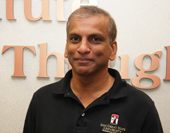
KHALEEL MOHAMMED born in Guyana, South America.His educational quest has taken him to several universities. He read Islamic Law at Muhammad bin Saud University (Riyadh). His MA, specializing in Judaism and Islam was at Concordia University (Montreal), and his Ph. D. in Islamic Law was at McGill (Montreal). He was a post-doctoral fellow and lecturer at Brandeis University for two years before becoming a professor at San Diego State University where he is currently based. He has written numerous articles, two books and is very active in global interfaith dialogues.
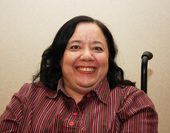
AISHA MUSA’s training at Harvard focused on early Islamic scriptural history, specifically the relative authority of the Qur’an and Prophetic Traditions (Hadith). Her book, Hadith as Scripture: Discussions on the Authority of Prophetic Traditions in Islam (Palgrave, 2008)-explores the development of the doctrine of duality of revelation and issues surrounding the relative authority of the Qur’an and the Prophetic Traditions, through an examination of early Islamic texts in a variety of genres from the 8th -11h centuries CE, and compares the early controversies to their current counterparts. The question of the relative authority of the Quran and the Prophetic Traditions is part of usul al-fiqh(roots of jurisprudential methodology).
How early Muslims answered that question has helped to shape Islamic theology and jurisprudence throughout the Muslim world for the past 1200 years. As part of her work, she produced the first English translation of al-Shafi’i’s Kitab Jima’ al ‘ilm, one of the most important early texts dealing with the authority of Prophetic Traditions. The current resurgence of debates over the authority of Prophetic Traditions relative to the Quran, make it a contemporary question of both academic interest and personal importance to Muslims. Her research and teaching interests extend from the early classical period to the present and include translation of classical Arabic texts, Quranic interpretation, women’s issues, and modern day reformist and neo-traditionalist movements.
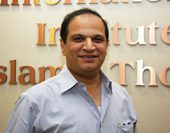
IMTIYAZ YUSUF was born in Tanzania, has BA (Politics) from Poona University in India, MA (Islamic Studies) from Aligarh Muslim University also in India and Ph. D. (Religion) from Temple University, Philadelphia. He has been living in Thailand for last 21 years. Dr. Imtiyaz Yusuf is currently Visiting Associate Professor and Malaysia Chair of Islam in Southeast Asia at ACMCU, Georgetown University, Washington DC, USA. In Thailand, uf is Program Director, Dept of Religion, Graduate School of Philosophy and Religion, Assumption University in Bangkok, Thailand. He specializes in Religion with a focus on Islam in Thailand, Southeast Asia and Muslim-Buddhist dialogu
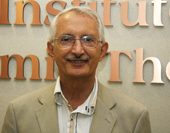
AHMAD KAZEMI MOUSSAVI is professor of Islamic law and modem developments in the Islamic world, currentlylecturing at the University of Maryland. He was born and educated law in Iran. He served 18 years as a lawyer anddiplomat in the Iranian Ministry of Foreign Affairs before 1980. He received his Ph.D. in “Islamic Studies” from McGillUniversity in 1991. Dr. Moussavi taught at McGill and Tehran Universities before joining the International Islamic University of Malaysia in 1992, where he taught Islamic legal institutions and modem developments till 2005. Hepublished three books entitled Religious Authority in Shi ‘ ite Islam, Shi’ite Ulama and Political Power and Facing OneQiblah, and more than 50 articles in academic journals.
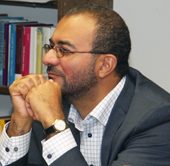
JASSER AUDA is currently Associate Professor in the Public Policy Program, Faculty of Islamic Studies, Qatar Foundation, Qatar. He is Visiting Associate Professor at the Department of Islamic Law, Faculty of Law, Alexandria University, Egypt. Dr. Auda is affiliated with numerous organizations active in Islamic scholarship such as the UK Board of Muslim Scholars, the Good Islamic Governance Index (headed by Imam Faisel Rauf), the International Union of Muslim Scholars, the International Institute of Islamic Thought (IIIT), UK; and the Association of Muslim Social Scientists (AMSSUK).
Dr. Jasser Auda is the Founding Director of Al-Maqasid Research Center in London. He was a Research Fellow at the University of Southampton, UK, Associate Professor at the College of Arts and Sciences, American University of Sharjah, UAE, and Assistant Professor at Ryerson University, Canada, University of Bahrain and the University of Waterloo, Canada.
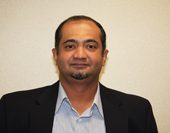
MUQTEDAR KHAN is Associate Professor in the Department of Political Science and International Relations at the University of Delaware. He is also the Director of the Islamic Studies Program. He earned his Ph.D. in International Relations, Political Philosophy, and Islamic Political Thought, from Georgetown University in May 2000. Dr. Khan is a member of the International Institute of Islamic Thought (IIIT) Council of Scholars, a select group of scholars that advises IIIT on academic matters. He is also a Fellow with the Institute for Social Policy and Understanding. He was a Senior Nonresident Fellow with the Brookings Institution [2003-2008] and a Fellow of the Alwaleed Center at Georgetown University [2006-2007]. He has been the President, Vice President and General Secretary of the Association of Muslim Social Scientists.
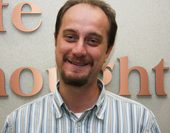
SAMI CATOVIC is a PhD candidate and adjunct Professor at Temple University, Department of Religion. He is also a practicing attorney in the state of New Jersey and a member of New Jersey’s Muslim attorneys Association.
Besides practicing law and acdemic activity, Sami Catovic is involved with the American Muslim community organizations. He is the East Zone representative on the Executive Council of the Islamic Society of North America (ISNA). He recently served as co-chair of ISNA 2010 National Convention Program.
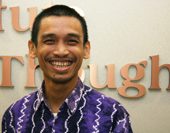
AHMAD RAFIQ is currently a PhD student at Department of Religion Temple University. He holds a B.A. in Qur’an and Hadith Studies from the State Institute of Islamic Studies Banjarmasin, Indonesia, and received a double master’s degreee in Interreligious Relations and Islamic Studies from the State Islamic University Sunan Kalijaga, Indonesia, where he has been also a member of the faculty at the Department of the Qur’an and Hadith Studies since 1999. He has worked for the Center for Religious and Socio-Cultural Diversity and the Center for Religions and Local Cultures in Yogyakarta. He has awarded Fulbright Presidential Scholarship for PhD Program from 2007 to 2010. Rafiq is researching local religious practices and approaches to the Qur’an among Muslims in Indonesia.
